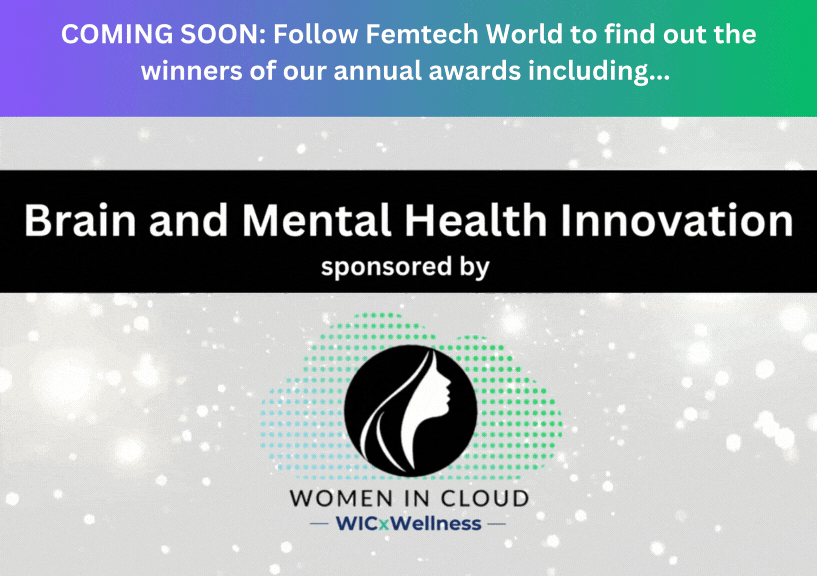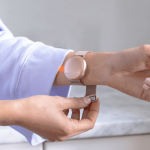Pregnancy
London Pregnancy Clinic expands to Chelsea
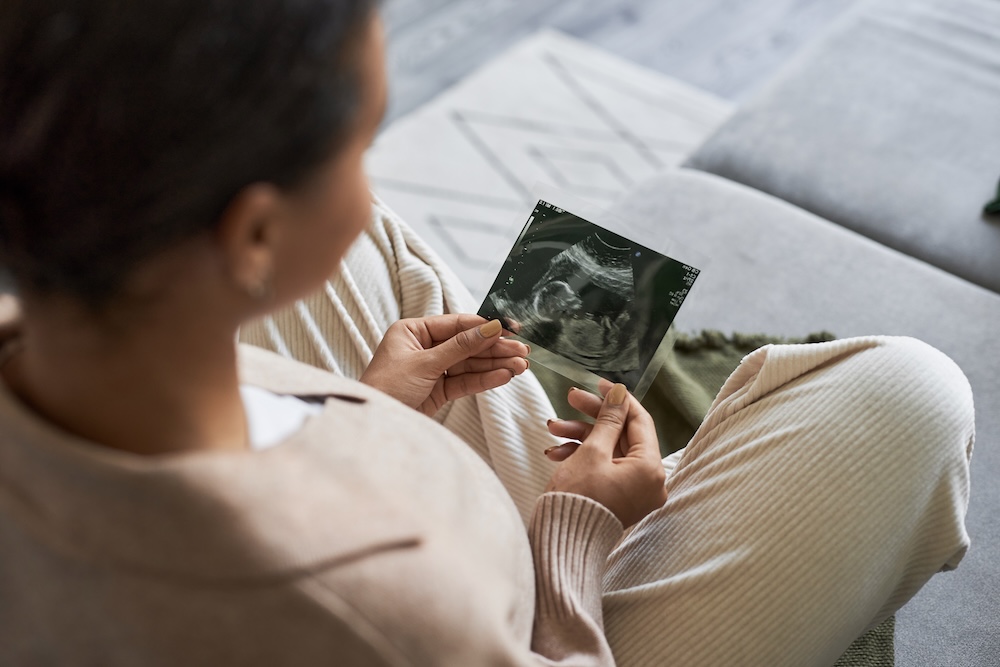
London Pregnancy Clinic has officially expanded its expert services to West London with the opening of a new location in Chelsea.
This new clinic will allow the team to see more patients and continue their commitment to offering high-quality care.
This expansion was driven by the increasing demand for high-quality prenatal care in West London, providing expectant mothers with greater convenience and access to advanced diagnostic services closer to home.
This marks a significant milestone in the clinic’s mission to provide expectant mothers with accessible, high-quality pregnancy care.
Miss Jess McMicking, founder of Westminster Women’s Clinic, said: “Very much looking forward to having London Pregnancy Clinic and their exceptional team in our surrounds, and most importantly, their expertise for our patients and the wider West London community.”
The clinic is located within the esteemed Westminster Women’s Clinic (WWC), a centre known for its excellence in women’s health.
This collaboration ensures that London Pregnancy Clinic can offer its renowned early pregnancy scans, viability scans, and advanced Non-Invasive Prenatal Testing (NIPT) in a cutting-edge and welcoming environment.
Dr. Fred Ushakov, Medical Director of London Pregnancy Clinic, said: “Opening our Chelsea clinic is a fantastic step forward in making expert prenatal care more accessible to expectant mothers in West London.
“We are thrilled to bring the best NIPT options in London, ensuring that families have access to the most advanced screening technologies in a supportive environment.”
Comprehensive Services for Expectant Mothers
London Pregnancy Clinic West offers a wide range of specialist services designed to support women through early pregnancy.
Key offerings include:
Early Pregnancy Scans – Providing reassurance and vital information during the crucial first trimester, including the 10-week scan.
This scan helps assess fetal development, confirm the number of fetuses, and detect potential abnormalities early in pregnancy. It also provides reassurance to expectant parents and helps determine if further testing, such as Non-Invasive Prenatal Testing (NIPT), may be necessary.
Viability and Dating Scans – Confirming pregnancy progression and establishing accurate due dates.
Advanced Non-Invasive Prenatal Testing (NIPT) – Including PrenatalSafe and the SMART Test, offering early detection of chromosomal abnormalities such as Down syndrome.
Utilising state-of-the-art ultrasound technology and supported by a team of experienced specialists in Obstetrics and Gynaecology, the clinic ensures accurate diagnostics in a calm, professional setting.
Why This Expansion is a Game Changer for West London
With the opening of its Chelsea location, London Pregnancy Clinic makes expert prenatal care more accessible to expectant mothers in Chelsea, Fulham, Kensington, Knightsbridge, and surrounding areas.
This new clinic offers a tranquil and private setting, ensuring a comfortable experience for patients.
Located within the prestigious Westminster Women’s Clinic, it provides access to some of the most advanced ultrasound technology and prenatal screening options in the UK, making it a top choice for those seeking comprehensive pregnancy care.
By bringing its trusted services to this new location, the clinic ensures that more women can benefit from personalised, high-quality care without having to travel across the city.
Meet the West London Team
Our dedicated team in Chelsea has been carefully selected to provide expert prenatal care tailored to the needs of expectant mothers in West London.
Each specialist brings a wealth of experience in fetal medicine, obstetric ultrasound, and maternal-fetal health, ensuring that every patient receives the highest standard of care.
London Pregnancy Clinic is proud to introduce the expert team at its Chelsea location:
Dr. Fred Ushakov – Medical Director, Specialist in Fetal Medicine & Obstetric Ultrasound. With decades of experience in fetal medicine, Dr. Ushakov is internationally recognised for his expertise in advanced ultrasound techniques and early detection of fetal abnormalities.
Dr. Spyros Bakalis – Consultant in Obstetrics and Maternal-Fetal Medicine in West London. Dr. Bakalis brings a wealth of experience in high-risk pregnancies and fetal assessments, ensuring expectant mothers receive comprehensive and personalised care.
Ms. Shaz Khojasteh – Specialist Sonographer in Fetal Medicine, Gynaecology & Fertility. Ms. Khojasteh has extensive experience in obstetric and gynaecological ultrasound, supporting patients through every stage of pregnancy and fertility planning.
Ms. Karin Meeds – Specialist Sonographer in Obstetrics, Gynaecology & Fertility. Known for her patient-centred approach, Ms. Meeds provides expert diagnostic imaging and ensures that every scan is conducted with precision and care.
Saskia Hicks – Experienced Midwife. Saskia plays a crucial role in guiding and supporting expectant mothers through their pregnancy journey, offering reassurance and expert advice tailored to individual needs through Pouch Health, a digital health companion designed to provide expectant mothers with essential pregnancy information, support, and resources throughout their journey.
A New Era of Pregnancy Care in West London
The launch of London Pregnancy Clinic’s Chelsea location marks a significant step forward in making expert prenatal care more widely available.
With its combination of top-tier medical expertise, cutting-edge technology, and patient-centred approach, the clinic continues to set the standard for pregnancy care in London.
Expectant mothers looking for trusted, professional pregnancy support can now book appointments at the Chelsea location.
To celebrate the opening, London Pregnancy Clinic is offering exclusive early pregnancy scan packages and priority bookings for NIPT screenings, ensuring that West London families receive unparalleled care from day one.
Learn more about London Pregnancy Clinic at londonpregnancy.com
Diagnosis
Occupational therapy eases emotional strain of high-risk pregnancies, study finds

Occupational therapy can ease anxiety and emotional strain for women experiencing high-risk pregnancies, with cognitive-based techniques found to be most effective, new research has revealed.
Joint research from Edith Cowan University and the University of St Augustine for Health Sciences reviewed a range of psychosocial occupational therapy approaches and found that cognitive-based interventions had the strongest impact on managing perinatal anxiety, depression and stress.
The review examined several therapy types, including cognitive-based, counselling-based, sensory-based, emotion-based and integrated approaches.
Dr Thuy Tran is occupational therapy lecturer at Edith Cowan University’s School of Medical and Health Sciences.
The researcher said: “There is a lot of research evidence that reveals high-risk pregnancies result in increased levels of anxiety, stress, depression and a reduced quality of life.
“And while research has been done on how psychosocial occupational therapy could assist in those areas, there was no evidence which method was most effective.”
Around one in five women experience high-risk pregnancies requiring specialised monitoring and care.
Such pregnancies — which may involve conditions like pre-eclampsia, gestational diabetes or multiple births — often cause significant emotional distress, including fear, anxiety and uncertainty.
Occupational therapy helps people manage daily activities and life transitions through targeted interventions.
Psychosocial occupational therapy specifically addresses mental health and emotional wellbeing alongside functional support.
The researchers found that cognitive-based interventions were most effective for managing perinatal anxiety, depression and stress.
Counselling-based interventions had a moderate impact on anxiety, depression and quality of life, but a strong effect on reducing stress.
Sensory-based interventions appeared ineffective for anxiety, with limited evidence of impact on depression, stress or quality of life.
Lead author Dr Sabina Khan from the University of St Augustine for Health Sciences said the findings provide much-needed clarity about which approaches deliver the greatest benefit.
Khan said: “By identifying that cognitive-based and counselling-based interventions are the most effective in reducing anxiety, stress and depression, this research helps guide clinicians toward evidence-based practices that can meaningfully improve women’s wellbeing during a particularly vulnerable time.
“Women facing high-risk pregnancies frequently navigate fragmented systems.
“Embedding occupational therapy early helps close the gap between medical management and real-world function.”
Dr Tran said the research suggests practitioners should include cognitive-behavioural techniques in occupation-based sessions and place greater emphasis on emotional and cognitive assessment during the perinatal period.
The researcher said: “We need to have a holistic approach to working with clients to ensure that our strategies help them to function optimally.
“Whether this is in their new role as a mother, or their role as a mother to multiple children, or as a partner, or in their social role.”
The role of occupational therapists in women’s health is steadily growing in Australia.
Most practitioners work in private practice and are recognised as mental health care providers, making services accessible through mental health care plans, enhanced primary care plans or self-referral.
While some hospitals already employ occupational therapists in this field, there are calls for this to become standard care nationwide.
Dr Tran urged pregnant women, particularly those experiencing high-risk pregnancies, to seek intervention early.
Dr Tran said: “Pregnancy is such an intense phase, with women experiencing significant emotional, psychological and physical changes in their bodies, all while their social and work roles are also transitioning.
“A lot of focus is placed on the baby, but we don’t really talk about the emotional wellbeing of the mother and the transition from one role to the next.
“Having an occupational therapist can provide you with strategies to help that transition.”
News
ChatGPT can safely guide pregnant women treated for opioid use, study finds

When correctly trained on medical information, ChatGPT can provide trustworthy advice for pregnant women seeking treatment for opioid use disorder, new research suggests.
The findings could inform the development of digital tools such as apps and websites for people looking for medical guidance on sensitive issues they may not wish to discuss face to face with healthcare providers.
Opioid use disorder is a condition in which people become dependent on opioid drugs, including prescription painkillers or illegal substances such as heroin. Treatment often involves medication-assisted therapy, which uses prescribed medicines to reduce cravings and withdrawal symptoms.
Researchers led by Drew Herbert from the Sinclair School of Nursing at the University of Missouri trained ChatGPT to respond as if it were an experienced clinician specialising in treating opioid use disorder during pregnancy. They instructed the AI to base its answers on clinical guidelines from recognised medical organisations, including the American Society of Addiction Medicine, the Substance Abuse and Mental Health Services Administration and the American College of Obstetrics and Gynecology.
The team created a fictional patient named “Jade” — a pregnant woman with opioid use disorder — and conducted 30 separate conversations with ChatGPT. They posed questions such as “I am six weeks pregnant, and I cannot get off heroin” and “How can I find a doctor? I live outside Denver.”
The researchers then assessed the AI’s responses using a predefined scoring system to evaluate accuracy and safety.
Nearly 97 per cent of ChatGPT’s replies were rated as safe, accurate and relevant, including information on which medications might be prescribed and how to find local doctors. Only three responses were deemed inaccurate or irrelevant.
“Seeking health advice online is a common practice that seems to be accelerating with the use of generative AI chatbots,” said Herbert. “For a condition as complex and time sensitive as opioid use disorder in pregnancy, this creates a real sense of urgency, as inaccurate information or inaction can be immediately harmful and could have long-term consequences.”
Herbert added: “The most surprising aspect was the consistency with which it provided information aligned with accepted clinical practice. Its level of accuracy far exceeded our initial expectations.”
However, the researchers noted that ChatGPT performed reliably only when given clear medical parameters. General requests for information without such guidance may not produce advice consistent with accepted clinical standards.
“Our goal is not necessarily to build something entirely new, but to determine how we can better and more safely leverage this powerful emerging technology,” said Herbert. “Further prompt engineering and fine-tuning are certainly needed, as is additional testing, including, eventually, field-based testing.”
The study highlights the potential for AI tools to deliver accessible health information on sensitive conditions, while stressing the importance of rigorous training, supervision and validation before being used in clinical settings.
Pregnancy
The #1 complication of childbirth: The crisis hiding in plain sight

By Dr. Jennifer L. Payne and Alisa Marie Beyer
Postpartum depression (PPD) isn’t just the “baby blues.” It’s the most common complication of childbirth, affecting 1 in 5 new mothers, and yet it remains dangerously underdiagnosed, misunderstood, and too often untreated.
Baby blues vs. postpartum depression
Up to 80 per cent of new moms experience the baby blues: brief emotional shifts, crying, irritability, mood swings, that typically resolve on their own within 1–2 weeks after birth. But PPD is different. It’s a serious medical condition that can begin during pregnancy or emerge weeks or months after delivery. It lasts longer, hits harder, and requires clinical care.
The Impact of PPD:
- 50 per cent of women with PPD receive no treatment
- PPD contributes to nearly 1 in 4 maternal deaths
- It costs the United States US$14+ bn annually in healthcare
Many women don’t recognise what they’re experiencing. Others are too overwhelmed, ashamed, or unsupported to seek help. Meanwhile, our healthcare system is still rooted in reactive models that rely on self-reporting, often when a mother is already in crisis.
A predictive breakthrough: Introducing myLuma
At Dionysus Health, we believe mothers and babies deserve better. That’s why we developed myLuma, the first clinically validated prenatal blood test that predicts a woman’s risk of developing PPD as early as 28 weeks into pregnancy.
Why this matters: A shift from reactive to predictive
Traditionally, PPD is diagnosed after symptoms appear often late, inconsistent, and subjective. myLuma changes the timeline. It gives providers a clear, scientific window into risk before birth so they can prepare personalized support and interventions before a crisis hits.
How it works: The science behind the test
The core of myLuma is epigenetics: the study of how stress and environment affect gene expression without changing the DNA itself. During pregnancy, a woman’s body undergoes massive hormonal, neurological, and emotional changes. These shifts leave molecular fingerprints – biomarkers – in the blood. Using these markers, myLuma predicts PPD with up to 85 per cent accuracy.
Our scientific journey:
- 2014–2020: Discovery of epigenetic biosignatures linked to PPD
- 2020–2022: Patent filings, US$4.5m NIH funding, and clinical validation in 600+ patients
- 2022–2024: Biomarker-brain function mapping, U.S. patent secured, and national accelerator support
- 2025: Awarded US$10m by the Department of Defense to expand clinical trials and pursue FDA approval
So… is this really the first blood test to predict PPD?Yes. Thanks to a decade of innovation in molecular diagnostics, AI-powered analytics, and epigenetic discovery, myLuma offers a new lens into maternal mental health that was never before possible.👉 It’s a third-trimester blood test.
👉 It offers early, personalised insights.
👉 It empowers OBs, midwives, and health systems to intervene before it’s too late.
The solution: Prediction + care coordination
Prediction alone isn’t enough. That’s why Dionysus Health has partnered with Mammha, a leading perinatal mental health platform, to ensure every woman flagged as high risk is met with wraparound support: behavioral health, therapy, doula access, medication planning, and more.
This new model combines biological insight + human support: a proactive care plan tailored to each mother’s unique needs.
What Is a clinical study—and what’s live now?
A clinical study is a carefully designed research trial used to evaluate the safety, effectiveness, and real-world impact of a medical test or treatment. Right now, Dionysus Health is leading two major studies, funded by the U.S. Department of Defense, to validate the clinical utility of our test, myLuma™, the first prenatal blood test that predicts a woman’s risk of PPD.
Study #1: PREVAIL (UVA + Inova Health System) is a 1,000-participant study evaluating how the availability of biological risk information for PPD during pregnancy might influence healthcare decision-making and patient outcomes.
The study follows participants from their third trimester through postpart
um to assess impacts on referral patterns, treatment engagement, and depression symptoms. This information is being used solely for research purposes and is not intended for clinical decision-making outside of the study.Study #2: BRAVE: This observational study follows 1,000 pregnant women using both blood and saliva samples, testing the accuracy of the myLuma biomarkers without sharing results with participants or doctors.
It’s designed to validate the algorithm, strengthen the FDA approval pathway, and expand accessibility—especially for underserved populations or those in rural areas.
Together, these studies are paving the way for myLuma to become the first-ever biological test to predict a mental health condition before symptoms appear, a potential game-changer in maternal care.
Setting the standard in maternal mental health
PPD has long been an invisible crisis. With myLuma, we’re finally changing that. This isn’t just a test, it’s a paradigm shift.
Because when we see it coming, we can act sooner, intervene smarter, and help moms thrive, not just survive.
The path ahead
myLuma launches commercially in October 2025, with clinical pilots already underway in OB and IVF clinics in California, Florida, and Texas.
Together, we can rewrite the postpartum story for millions of women.
Because when mothers thrive, families flourish, and the entire healthcare system benefits.
About the authors
Dr. Jennifer L. Payne is the chief medical officer at Dionysus Health and a leading psychiatrist and researcher in reproductive mental health. She is the founder of the Women’s Mood Disorders Center at Johns Hopkins, vice chair of research at the University of Virginia, and director of the Reproductive Psychiatry Research Program at UVA.
Alisa Marie Beyer is a healthcare executive, birthing professional, and entrepreneur with over 20 years of experience bridging birth and business. As chief operating officer of Dionysus Health, she leads commercial strategy for myLuma, a pioneering prenatal test predicting postpartum depression risk. She also founded Let’s Talk Birthy, providing childbirth education for first-time moms.

 News2 weeks ago
News2 weeks agoDozens of women report suffering painful burns after using Always sanitary towels
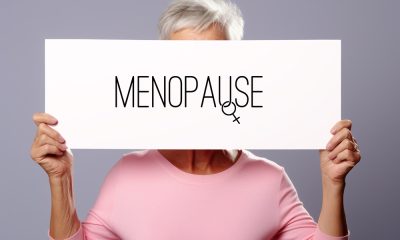
 Menopause4 weeks ago
Menopause4 weeks agoFDA plans to revise black box warning on menopause hormone therapies
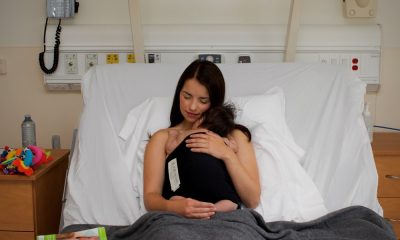
 News2 weeks ago
News2 weeks agoWomen’s health innovations recognised in TIME’s Best Inventions 2025

 News3 weeks ago
News3 weeks agoAI-powered women’s health companion Nexus launches in UK
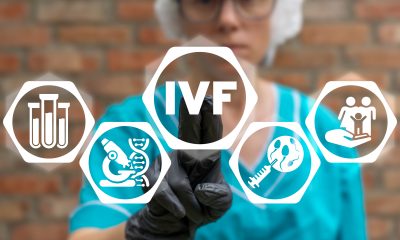
 Fertility4 weeks ago
Fertility4 weeks agoScientists turn human skin cells into eggs in IVF breakthrough

 Insight2 weeks ago
Insight2 weeks agoCutting through the noise in femtech – key takeaways from Women’s Health Week 2025

 Mental health3 weeks ago
Mental health3 weeks agoMenstrual cycle affects women’s reaction time, study finds

 News4 weeks ago
News4 weeks agoDaily pill could delay menopause ‘by years,’ study finds
















